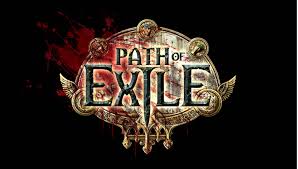Bartering Currency Items in Path of Exile
At present, it’s widely acknowledged that gold is too easy to obtain in online RPGs, GGG announced that they observed players trading certain items as currency and ignoring the underlying gold. Some examples are the ‘Globs of Ectoplasm’ in Guild Wars and the ‘Stone of Jordan’ and ‘High Rune’ economies in Diablo II.

Successful game pseudo-currencies have four characteristics:
- Homogeneity: Each unit of the currency has to be equivalent to other units. They should stack together, and there should never be a reason for a player to discriminate between two different units of that currency.
- Utility: The individual currency items have specific uses in addition to their trade value. If the recipient of the currency item is able to use it to improve their character, then it’s even better for them to trade for. The economic value represented by its scarcity is just an added bonus so that they are able to on-trade it if they decide not to consume it themselves.
- Scarcity: The currency should not be trivial to find. Some popular in-game barter items represent days or weeks of playing, and provide meaningful trade material for very high-end items. Other barter items are more common (cropping up every half hour or more) and allow for granularity with lower value trades.
- Handleability: It should be convenient to transport or transact with a large portion of your net worth as currency.
These three factors help make a currency acceptable. If a currency is arbitrary (players are told ‘’this is what you should use to trade with’’) but it isn’t useful, homogeneous or particularly scarce, then it’s possible they’ll pick some other currency that feels more appropriate to them. It’s important for game designers to predict the encouraged player behavior and to make sure that behavior is enjoyable.
How a currency item system affects the previously mentioned consequences of a gold based economy:
- Sinks: By having every currency item inherently useful to improve a character, each currency item is its own sink. In experience with Path of Exile, a majority of currency item trades end with the item being immediately consumed by the recipient. This also means that unnecessary gold sinks like repairing items can potentially be removed from the game.
- Gold Farmers: Although it’s still possible to farm currency items with unskilled labour, it’s substantially more complicated. Having to manage an inventory of dozens of different items with fluctuating rarities is a much larger ordeal that is difficult to deploy en-masse. Real players won’t have a problem with this because they know more about the game.
- Wealth Determinism: A character’s wealth is determined by the sum of both his available currency items and also any items that he may have for trade. The unpredictable acquisition of both currency items and trade-worthy equipment helps mask the treadmill feeling that occurs when you can predict your gold gain per quest or per minute.
- Trade Parity: The relative value of currency items fluctuates constantly as new and interesting applications are found for them. It’s also subjective for each player – they all have own current item goals and each currency item may help them achieve that goal in a different way. Players can accept these barter trades because they either meet an immediate need for a currency item to use or because the items are of roughly equal value and can be later traded to someone else.
In addition, if you need some PoE currencies, You can click on this link: https://www.gm2v.com/path-of-exile. It’s our pleasure to serve you!